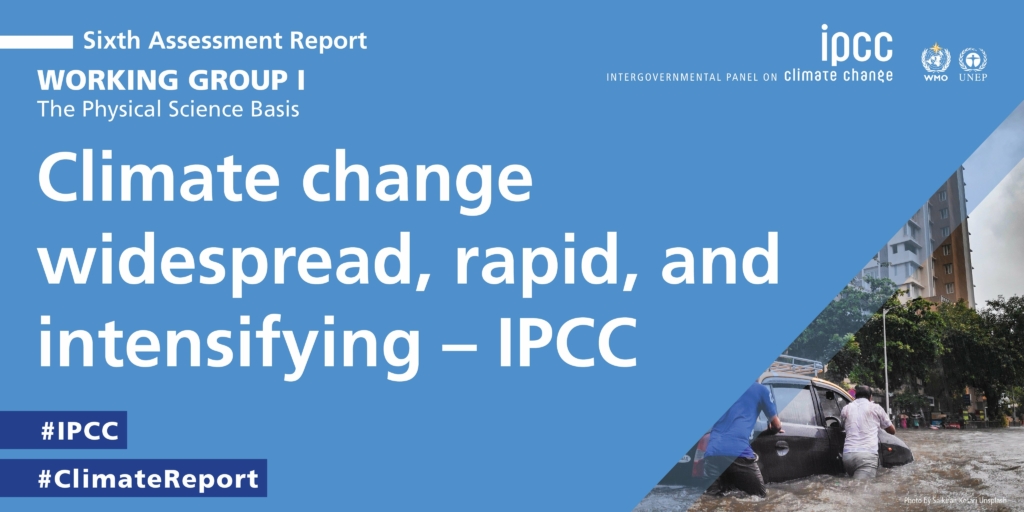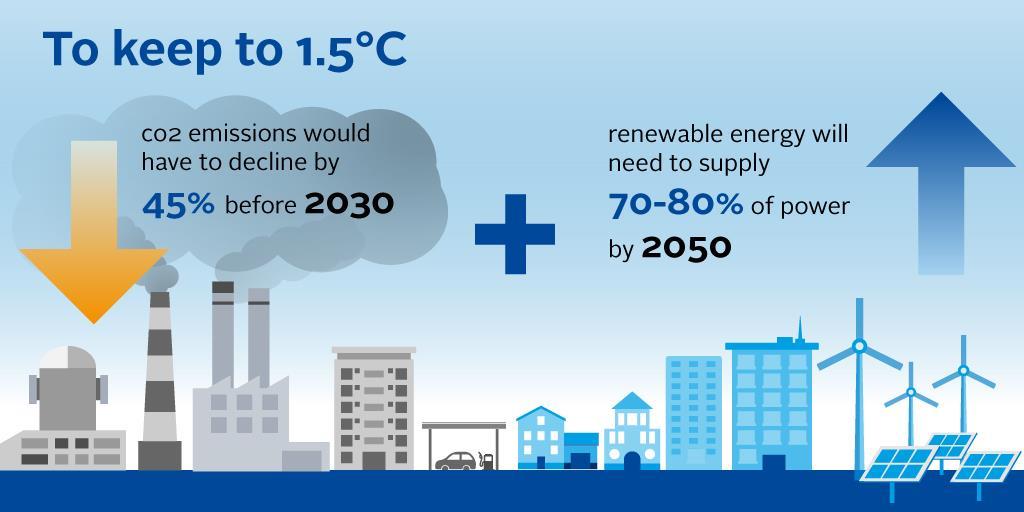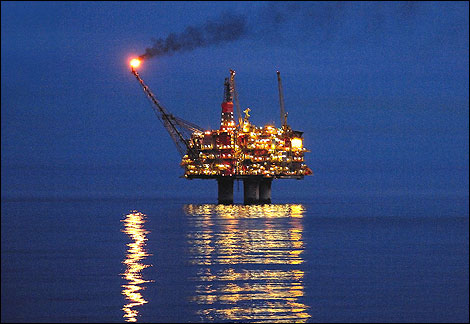The Crisis of Growth and Capital
 Something important has changed. The last two IPCC reports are significant in that they have identified the economy as the problem, not the solution. Faced with this harsh truth the ruling elites, supported by a pliant and cooperative media have engaged in a total backlash, attacking not just anyone who suggests an alternative economics, but the idea of Net Zero itself. Even the most moderate and liberal ideas, such as a ‘wellbeing economy’ are now viewed as a dire threat. The penny has dropped. The battleground is no longer about climate denialism but capital denialism. Given the choice between changing from a system that accrues them enormous wealth and power, or changing course to ensure ecological viability, the powerful have chosen to protect their interests.
Something important has changed. The last two IPCC reports are significant in that they have identified the economy as the problem, not the solution. Faced with this harsh truth the ruling elites, supported by a pliant and cooperative media have engaged in a total backlash, attacking not just anyone who suggests an alternative economics, but the idea of Net Zero itself. Even the most moderate and liberal ideas, such as a ‘wellbeing economy’ are now viewed as a dire threat. The penny has dropped. The battleground is no longer about climate denialism but capital denialism. Given the choice between changing from a system that accrues them enormous wealth and power, or changing course to ensure ecological viability, the powerful have chosen to protect their interests.
In the emerging socio-ecological crisis of 2023 we face escalation and backlash. The IPCC’s sixth report [AR6 Synthesis Report: Summary for Policymakers Headline Statements (ipcc.ch)] sets out the devastation that has already been inflicted on swathes of the world. March’s final instalment, called the synthesis report, is almost certain to be the last such assessment while the world still has a chance of limiting global temperature rises to 1.5C, the threshold beyond which our damage to the climate is thought to become irreversible.
What has the response been to what has been called a “final warning” on the climate crisis?
Last month the UK govt announced its new ‘Net Zero Plan’, which, astonishingly includes plans for to unleash a new wave of UK oil and gas exploration (including Rosebank). To rationalise this the government is talking up carbon capture and storage (CCS), which seeks to apprehend CO2 before it gets into the atmosphere and store it under the seabed. Nowhere has CCS been tested at the sort of scale that would be required to cancel out the emissions arising from the proposed plan for more gas and oil. This is make-believe stuff.
As Julia K. Steinberger, Professor of Ecological Economics and IPCC author has said: “We continue to witness the rise and triumph of the fossil fuel industry over our societies.”

Now even the simplest of ideas – such as renewables and public transport alternatives are abandoned. Onshore wind remains well and truly blocked. Grant Shapps has refused to make solar panels mandatory on all suitable new homes (The government’s climate plans are a recipe for disaster – New Statesman). While some countries, like France and Germany have offered highly subsidised rail travel and a sharp move away from short-haul flights (the ‘Deutschlandticket,’ entitles users to use local transport and regional trains all across Germany for under 50€ a month) Britain’s Department of transport has just announced tax cuts on flights within the UK, a move that will “help boost UK-wide connectivity”.
The New Scientist quotes from a highly critical report by the Climate Change Committee (CCC), the organisation that advises the UK government on cutting emissions and adaptation saying: “The UK has almost no credible plans to adapt to climate change”.
What is going on? In the face of the most dire warnings the UK government, the most extreme regime in decades, has dropped any pretence of action. Even the facade of environmentalism, the window-dressing has been abandoned.
The political backlash is hysterical. Janet Daly, in The Spectator writes: “The Left now has a demonic new aim: to make ordinary people poorer. The Net Zero ‘debate’ has revealed a stunning shift in the basic assumptions that underpin Left-wing political thinking.” Allister Heath, the Editor of the Sunday Telegraph penned an article in which he argued “Net Zero is a Trojan horse for the total destruction of Western society” and warned we should prepare for “a people’s revolution against policies that will abolish choice and impoverish millions”.
In a Scottish context there has been a wave of articles specifically defending the Holy Grail of growth. Iain Macwhirter, the columnist sacked by the Herald after allegations of racism [Iain Macwhirter to leave The Herald after offensive tweet – BBC News] wrote: “The Greens are opposed to economic growth in principle and want to “accelerate” the close down the oil and gas industry in the North Sea by the end of the decade. Theirs is not a world view shared by most members of the Scottish National Party. The whole point of independence is supposed to be to liberate the Scottish economy from the “dead hand” of Westminster rule and increase economic growth. The party has also had great historic affection for the hydrocarbon industry, revenues from which were always regarded as essential to justify the economic case for Scottish independence.”

This is a world in which the past fifty years has passed us by. For Macwhirter, and many others like him, growth is a totemic concept, here lashed to national liberation.
As climate reality dawns the collision between our economy and our society becomes more intense. Faced with the fact that perpetual growth on a finite planet is an ecological catastrophe, elites and their scribes are now doubling-down and protecting their economic belief-system against invasive reality.
Defenders of the climate-wrecking economic system we live under herald it as the mechanism for equality and prosperity, but this is increasingly impossible to defend. Clung to and heralded by its champions, a growth economy is characterised by disfiguring poverty and obscene inequality, spiralling mental health problems and an inability to meet the most basic human needs in terms of access to housing and healthy food. Indeed our current system is defined by stress and breakdown at every level.
While this precarity is hard-wired into our economic model – it’s important to note how this operates on a global scale and how much growth in the north depends on materials and labour from the south. Exploitation – both within and beyond the ‘developed’ north is at the heart of this system. As a group paper published in Science Direct outlines [Imperialist appropriation in the world economy: Drain from the global South through unequal exchange, 1990–2015 – ScienceDirect] such relations reveal that rich countries rely on a large net appropriation of resources from the global South.
- That the drain from the South is worth over $10 trillion per year, in Northern prices.
- The South’s losses outstrip their aid receipts by a factor of 30.
- Unequal exchange is a major driver of underdevelopment and global inequality.
- The impact of excess resource consumption in the North is offshored to the South.
In Scotland and in Britain we are experiencing a political breakdown, a reality-induced trauma as climate crisis meets social crisis, as the ‘cost of living’ intensifies social divide and the only answer presented is ‘more of the same’ and ‘business as usual’. If you want a litmus test of where we are in battling the climate crisis, and the scale of the corporate defence of vested power, the president of the next UN climate summit to be hosted in the United Arab Emirates later this year, is Sultan Al Jaber. Al Jaber, as well as being the United Arab Emirates minister for industry and advanced technology, is better known as the chief executive of the UAE national oil company, Adnoc, one of the world’s biggest oil and gas producers.
Growth as cognitive frame has only recently been contested. For many, probably most people, it remains synonymous with improvement, development, even civilization itself. As that assumption crumbles the implications for capital is suddenly being realised.
Faced with overwhelming evidence of ecological breakdown the political and media elites’ response is more fossil fuels and strapping themselves to the failed model of capitalism that has led us to this desperate predicament.

Lots of good analysis and references in this article. Thanks Mike !
I’m pleased that you highlight the scale (over £10 Trillion pa) of wealth extraction from the Global South by the wealthy north.
This is all part of why I’ve been arguing for recognition of this in the context of “Loss and Damage” global restorative climate justice.
No wonder the big financial interests (going far beyond just the fossil fuel sector) are beginning to panic and become ever more extreme in their propaganda war against ‘the science’. That is happening even with the deeply flawed and inadequate “net Zero” targets and ways of carbon accounting. I would beg everyone, particularly the Scottish Government in the context of its commitment to Scotland being a global exemplar of what a wellbeing economy could look like, to start using the much more exacting criteria embodied in the concept of “Net Positive”.
Well put together Mike, more and more people are now joining the dots.
The overshoot chickens are certainly coming home to roost!
Thanks Mark
it is all bananas. we live in an age where most of the planet’s population that have choices can access the information they need to make decisions about what is best for them – and they are choosing not to. ♂️
dunno why my shrug emoji turned into that…
Yes, a good article.
The mainstream media and right wing politicians, including some in the SNP, having contributed to the resignation of Nicola Sturgeon as FM, immediately began attacking the Green Party, claiming they were ‘trans’ zealots and anti growth and urging the SNP to end the arrangement which has given the Greens two ministers. The Deposit Return Scheme, supported by a majority in the Parliament and by a large majority of the Scottish public has become a target for attack as ‘destroying small businesses’.
Yes continous growth is not sustainable and at some point it will come crashing down….. And that will cause chaos world wide
“In Scotland and in Britain we are experiencing a political breakdown, a reality-induced trauma as climate crisis”
Do you really think that there is a discernable climate crisis on these islands?
At most, this ‘crisis’ has resulted in occasional restrictions on hosepipes in the South of England and a need to improve some coastal flood defences.
It’s a pretty weak justification for deindustrialising the Scots economy.
Probably worth noting that the SNP’s economic case for independence has been put together by its Growth Commission, whose primary argument is that the Scottish economy will grow as a result of independence. Also note that ScotGov’s draft Energy Strategy & Just Transition Plan rules out any publicly owned energy, and sets a target of just 6% of renewables being community owned by 2030. They do have powers (such as the ScotWind auction) to do things differently but have failed to use them.
Well said Mike. Unfortunately all the political parties, even the Greens, seem to be unable to articulate a vision of a viable alternative; the idea that economic ‘growth’ is good, even necessary goes very deep in culture. All the more reason to start examining our assumptions and building a different political vision that can capture people’s imagination. Otherwise we’ll be stuck with business as usual; or perhaps worse, after the revolution, like in Animal Farm we could find different people in charge but with the same sense of entitlement, just as keen to defend their power and wealth. .
That is precisely why we don’t just have to invent a different economic system but also new (particularly international) legal frameworks and also a way for future generations never again to make the mistake of letting wealth be used by humans to concentrate power. When will we ever learn that throughout recorded history when power is concentrated/centralised it is abused and inevitably leads eventually to corruption or worse.
Has anyone (in power) actually asked the populace if we would we willing to make sacrifices in order to have a viable future? Laid out the cold reality, in simple, adult terms and presented a set of liveable alternatives to avoid certain destruction and misery?
COVID showed us that:
A) We can all make big sacrifices if the stakes are high enough.
B) Government can receive support for radical change if the population are treated like adults and risks are explained in a credible way.
C) It is our health, our communities, our neighbours and friends that are the most important thing in our lives.
D) De-growth might feel good. Quieter roads, less air traffic, less air pollution, more time at home, less spending…
It’s time we ditched the current bunch of thieving, infantile dross that run things.
That is certainly appealing to me. But if 75% of people won’t even wear a mask in shops, and won’t forgo pubs and gigs and nightclubs to save 300 Scottish people from certain covid death every single month, I’m not hopeful. These are deaths we can see, every day, if we choose to look. They are ever present, unlike the further away effects of climate catastrophe, and almost no one will strap a piece of cloth over their mouth indoors to stop these deaths from happening.
I would love to live in the world you propose. I hope it comes to be.
“Has anyone (in power) actually asked the populace if we would we willing to make sacrifices in order to have a viable future?” – I think to frame it as ‘sacrifices’ is a mistake – ie (instead) Would you like a liveable future without the frenzied hyper-consumption that often drives mental health problems? Would you like to live in a society where everyones basic social needs were met and away from the grotesque inequality of our current economy? Would you like to live in a society with a survivable future?
But no, no-one has asked and no-one has shown any political leadership on this issue, the most important issue facing humanity.
In evolutionary terms, Capitalism is no longer fit for the environment. It can not adapt, so it will die. It is currently thrashing around like a shark on the beach, wounding everything within range, trying to adapt the environment to itself. To its own needs. With a delusional belief in its own omnipresence, slowly running out of oxygen.
That’s a great analogy.
The U.K. has a low growth economy with GDP still below where it was pre lockdown. Perhaps you should be congratulating the Tories?
GNP does not tell you what desirable areas of economic activity are growing and which undesirable ones are shrinking. We need a range of new indicators which more accurately reflect what is desirable for life quality and wellbeing. Many indicators exist but don’t get reported. Keep the pressure up on the Media to do so.